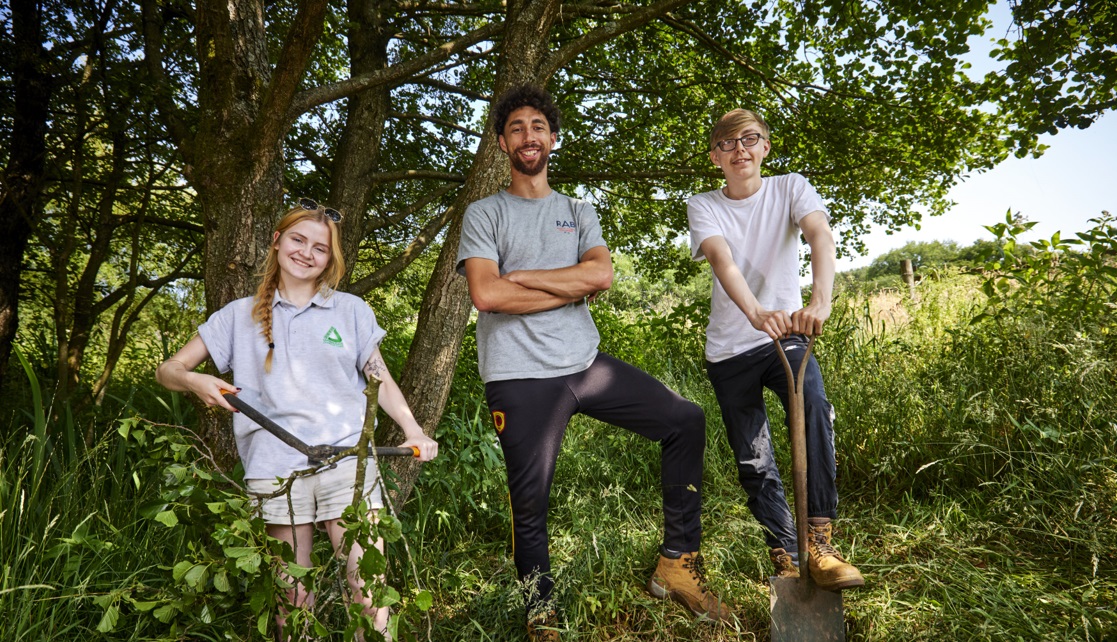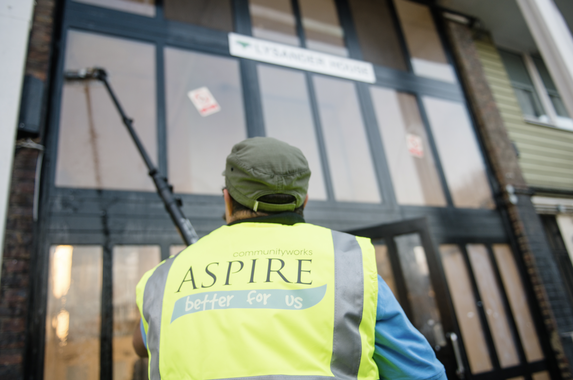Case studies for VCSEs
Groundwork UK

Groundwork is a federation of 15 charitable organisations operating across the UK. It runs programmes and activities to help people improve their prospects, working with communities facing multiple challenges, in places that lack social infrastructure and economic opportunities. It combines environmental and social impact, building the green economy while supporting communities to connect with nature and adapt to the climate crisis. From creating green jobs to supporting people with energy bills and retrofitting homes, it works to build a fairer and greener future in which people, places and nature can thrive.
Working with government departments
Groundwork UK (the national body of the federation) distributes grant funding for the UK Government, acting as an intermediary to make sure public money is invested in communities at a grassroots level. This involves bidding for contracts with central government departments and acting as an outsourced intermediary provider of grant management services.
It’s worked with the Ministry of Housing, Communities and Local Government to get groups such as parish councils involved in local planning, and with the Home Office to support charities tackling extremism. It’s also been contracted by the Department for Culture, Media and Sport to run the Voluntary Community and Social Enterprise (VCSE) Energy Efficiency Scheme – a £25m programme, largely distributed through grants. So far it has funded 1,100 organisations to carry out energy assessments to help them improve the efficiency of their buildings.
The benefits of working with a VCSE organisation
Groundwork UK’s position of having national grant management capability but also being able to leverage connections through its federation members allows it to promote grant programmes at a local level, supporting organisations to navigate through complexity and access funding they may not have been aware of.
Chief executive Graham Duxbury states that government outsourcing this kind of work aims to ensure grants are accessible to smaller, local organisations that are often volunteer-run. He said: “Having knowledge of that sector and that space is hugely important in terms of designing the service. You’ve got to be aware of capacity restraints and limitations, you’ve got to understand how volunteer-led organisations work and how to communicate with them as well as what to expect in terms of their capability to manage due diligence processes.”
This close knowledge of the VCSE sector has allowed Groundwork UK to develop a good understanding of what’s proportional when it comes to distributing money, which means it can give the contracting body a clearer idea of what money can deliver when directed to organisations of various sizes and capacities.
The second major benefit of working with Groundwork is that it’s “really good at bringing together partnerships”, as it knows where the “deep pockets of expertise are in the sector”. Graham points out that the energy efficiency programme would not have been possible without the support of specialist organisations such as the Centre for Sustainable Energy, the Energy Saving Trust and Locality.
Thirdly, working with a VCSE provider helps create broader impact, with “cross fertilisation being what you get from the sector”. Combining the social and the environmental is at the heart of Groundwork’s ethos, and the funding it distributes can create other opportunities for VCSE organisations. As Graham phrases it: “A grant programme may allow them to do one thing, but we may be able to communicate to them other opportunities and provide them with added value; so when we’re managing grants focused on a social issue we can signpost local grantees to other forms of funding and provide advice that might encourage them to think about their environmental impact too.”
What tips would you have for other VCSE organisations looking to work with government?
A key tip Graham has for VCSE organisations is to “be visible to the departments to whom you think you’re relevant”, with an important part of this being to get on a government procurement framework. These are pre-procurement portals through which organisations enter their credentials and effectively write a bid to showcase what they provide and their ability to deliver. Groundwork is on a government framework on grant management services.
Many departments use frameworks – with some, like the Department for Work and Pensions, referring to them as dynamic purchasing systems (or DPS). Often, if you are not on a framework, you cannot bid; they are effectively a pre-qualification process, so prospective VCSE suppliers should “find out if there are relevant frameworks for the kind of service that you look to offer”.
The second main tip for VCSEs wanting to work with central government departments is to not forget that you can negotiate around certain terms of a contract. Groundwork has successfully had things amended in the terms and conditions of contracts, such as questions around payment. As Graham puts it: “Big businesses do this all the time, and we forget that, so we should have confidence that we can negotiate too and get a deal that’s right for us. Some things will never change but some things can and do.”
Finally, Graham emphasises the importance in building a human relationship with the contracting department: “Remember that when dealing with government you are dealing with people. All good contracts are built on relationships so once you start to get to know the people on the other side of the fence and understand the pressure they’re under, such as managing public money and the finance and risk committees they need to report to, you get a better understanding on why things are done the way they are and what can and can’t be pushed back on. Never forget that any government contract is just a bunch of individuals trying to get something done.”
Based on a conversation with Graham Duxbury, chief executive at Groundwork UK


